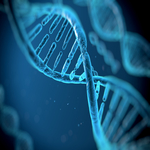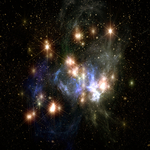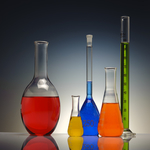Fifth Grade Science
Here is a list of the main scientific concepts students learn in fifth grade! These science concepts are organized into categories. To start, just click on any link. You can do these in any order at any pace that's right for you.
Chapter 1: Life Science - Anatomy
___________________________
Chapter 1
Life Science - Anatomy
Note: At this time, we do not have teacher lessons recorded for introducing the concepts, so please read the information with each experiment to get started.
Chapter 1-1
Activities & Experiments
Choose at least one of the activities below.
Chapter 1-2
Activities & Experiments
Choose at least two of the activities below.
Chapter 1-3
Activities & Experiments
Choose at least two of the activities below.
Chapter 1-4
Activities & Experiments
Choose at least two of the activities below.
Chapter 1-5
Activities & Experiments
Choose at least two of the activities below.
Chapter 1-6
Activities & Experiments
Choose at least two of the activities below.
- Detecting Temperature Changes
- Finger Thermometers
- Cooling & Heating
- Foggy Hands
- Nerve Tester
- Robotic Hand
Chapter 1-7
Activities & Experiments
Choose at least two of the activities below.
Chapter 1-8
Activities & Experiments
Choose at least two of the activities below.
- Consuming Oxygen
- Stethoscope
- Heart Rate Monitoring
- Lung Capacity
- Working Lung Model
- Detecting Carbon Dioxide
- All About Kidneys
Chapter 1 Learning Evaluation
Complete the Learning Evaluation below.
___________________________
 |
Life Science (Human Anatomy) A comprehensive course that teaches the fundamental concepts in human physiology and anatomy. Discover how to build a working robotic hand, measure your lung capacity, filter blood, detect genetic traits, chemically fingerprint your friends, and make a frog totally disappear. |
Chapters 2 & 3: Earth Science
___________________________
Chapter 2
Part 1: Weather and The Atmosphere
Chapter 2-1
Topic Intro & Explanation
Watch the FIRST video explanation on this page (Weather, Atmosphere and Water Cycles Part 1)
Chapter 2-2
Activities & Experiments
Choose at least two of the activities below.
Chapter 2-3
Topic Intro & Explanation
Watch the SECOND video explanation on this page (Weather, Atmosphere and Water Cycles Part 2)
Chapter 2-4
Activities & Experiments
Choose at least two of the activities below.
Chapter 2-5
Topic Intro & Explanation
Watch the THIRD video explanation on this page (Volcanoes, Earthquakes, & Tides Part 2)
Chapter 2-6
Activities & Experiments
Choose at least two of the activities below.
___________________________
Chapter 3
Part 2: Earth's Heat, Temperature & Energy
Chapter 3-1
Topic Intro & Explanation
Watch the FOURTH video explanation on this page (Thermodynamics Part 1)
Chapter 3-2
Activities & Experiments
Do at least one activity below.
Chapter 3-3
Topic Intro & Explanation
Watch the FIFTH video explanation on this page (Thermodynamics Part 2)
Chapter 3-4
Activities & Experiments
Do one or both of the following experiments
Chapter 2 & 3 Learning Evaluation
Complete the Learning Evaluation below.
___________________________
 |
Earth Science Far from static rocks and minerals, water remains the most influential Earth Science system that we experience every day, since it influences our energy, vegetation, biology, climate, and weather patterns. You'll get to learn about the important connections between the water systems of earth and the sun, whose energy powers the water cycle and climate. |
Chapters 4 & 5: Astronomy
___________________________
Chapter 4
Part 1: Planets, Moons & Objects
Chapter 4-1
Topic Intro & Explanation
Watch the FIRST video explanation on this page (Astronomy: Planets, Moons & Binoculars)
Chapter 4-2
Activities & Experiments
Choose at least two of the activities below.
Chapter 4-3
Topic Intro & Explanation
Watch the SECOND video explanation on this page (Comets, Asteroids & Meteorites)
Chapter 4-4
Activities & Experiments
Choose at least two of the activities below.
Chapter 4-5
Topic Intro & Explanation
Watch the THIRD video explanation on this page (Stargazing the Moon)
Chapter 4-6
Activities & Experiments
Do one or both of the activities below.
___________________________
Chapter 5
Part 2: Solar Astronomy
Chapter 5-1
Topic Intro & Explanation
Watch the FOURTH video explanation on this page (Solar Astronomy)
Chapter 5-2
Activities & Experiments
Choose at least two of the activities below.
Chapter 5-3
Topic Intro & Explanation
Watch the FIFTH & SIXTH videos explanation on this page
Activities & Experiments
Do one or both of the following math labs.
- Math Lab #1: XZ Tauri
- Math Lab #2: Exploding Stars
Chapter 4 & 5 Learning Evaluation
Complete the Learning Evaluation below.
___________________________
 |
Astronomy Discover Martian sunsets, eclipses and transits, what drives Neptune’s internal furnace when it’s so far from the sun, learn how binary planetary systems work, and more as you construct a spectrometer to split light into its rainbow signatures, investigate the electromagnetic spectrum, and so much more! |
Chapters 6 & 7: Chemistry
___________________________
Chapter 6
Chemistry Part 1
Chapter 6-1
Topic Intro & Explanation
Watch the FIRST video explanation on this page (Chemistry Part 1)
Chapter 6-2
Activities & Experiments
Choose at least two of the activities below.
Chapter 6-3
Topic Intro & Explanation
Watch the SECOND video explanation on this page (Chemistry Part 2)
Chapter 6-4
Activities & Experiments
Choose at least one of the activities below.
___________________________
Chapter 7
Chemistry Part 2
Chapter 7-1
Topic Intro & Explanation
Watch the THIRD video explanation on this page (Chemistry Part 3)
Chapter 7-2
Activities & Experiments
Choose at least two of the activities below.
Chapter 7-3
Activities & Experiments
Choose at least two of the activities below.
Chapter 7-4
Activities & Experiments
Choose at least two of the activities below.
Chapter 7-5
Activities & Experiments
Do one or both of the following activities.
Chapter 6 & 7 Learning Evaluation
Complete the Learning Evaluation below.
___________________________
 |
Chemistry Learn first-hand the fundamental principles of this essential science as you perform real chemistry experiments. Experiment with fuels and combustion, make your own hydrochloric acid, separate mixtures, produce oxygen gas, split the water molecule, fire copper ions across a solution, capture oxide gases, create a magnesium battery, and more with this section in chemistry. |
